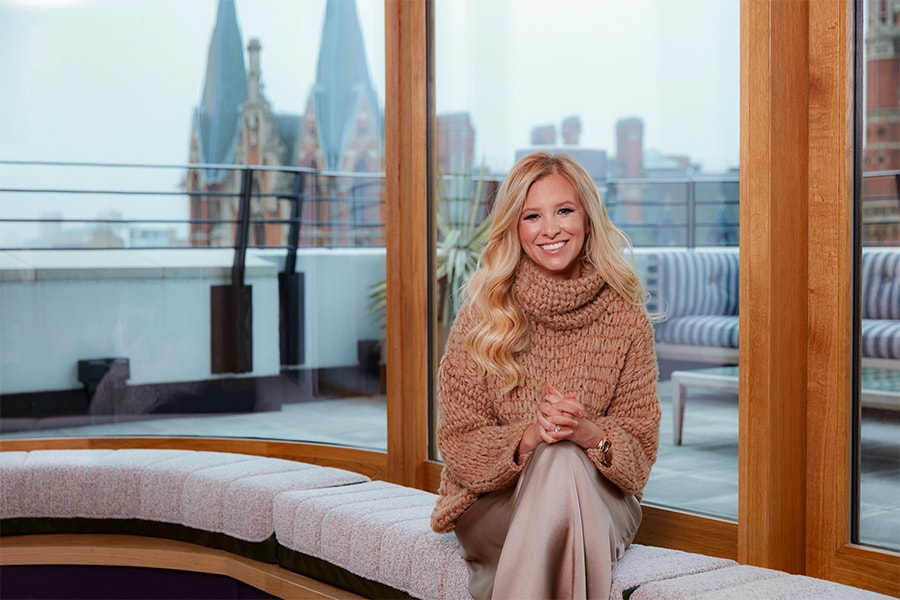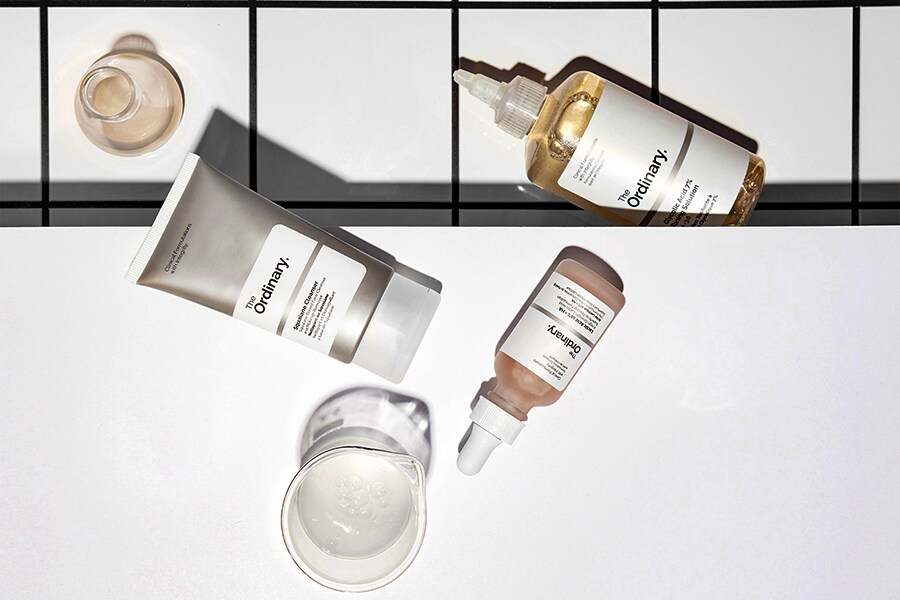In May 2021, American cosmetics giant Estée Lauder took control of DECIEM, increasing its stake in the group from 29 percent to 76 percent. Kilner, who continues to lead the brand, says, “By 2024, the Estee Lauder Company will become our full owner, so we will continue working on our integration with them and continue doing what we’re doing, but even bigger and better."
About the India launch she says, “We are so excited to finally have a presence in India." Kilner spoke to Forbes India over a Zoom call about The Ordinary’s growth story, the importance of innovation and dealing with a price sensitive market like India. Edited excerpts:
We were feeling quite frustrated around some of the dishonesty in the beauty industry, and actually just how hard it was to really understand the difference in products. For instance, for a serum, how do you know if spending $100 vs $10 really means that the more expensive product is 10x better? We took inspiration from the world of pharmacy. If you have a headache, you go and buy paracetamol or aspirin for a certain milligram, and each one is priced roughly the same. No one walks into a pharmacy to buy some pain relief medication, to find a huge difference in the price point—like it is in beauty.
That’s what led us to take this generic medicine kind of approach for beauty as well. These ingredients like niacinamide or hyaluronic acid are some of the best ingredients in the world of skincare and have been around for decades. We thought let’s try and bring some more transparency, educate users and give them products at an honest price point.
Q. What was the first product you sold and what was the reaction like?
Actually, we launched 16 products all at once to make sure that we had this ‘library of generic medicines’ in skincare. Unlike what most people told us, from the minute we sold our first product, there was this frenzy around our products. And quite consistently since the very beginning, our top two best sellers have been niacinamide and hyaluronic acid.
Q. What took The Ordinary so long to come to India?
We’ve always wanted to launch in India. The decision was made many years ago. I was last in India towards the end of 2017, we met with the Nykaa team when we were in Mumbai. We started looking into how things would work and launching in the Indian market has a lot of regulatory work that needs to be done. Then the pandemic happened, which delayed things for a little while. But now it feels like the perfect time.
On our Instagram page, there are so many comments on our posts like ‘When are you coming to India?’ So we know that the demand has been growing. Also, we do currently ship to India through our own commerce website, but I don’t think we serve people very well. We ship from the UK, so it can take quite a while for things to get there and products get stuck in customs. But even despite that, our direct sales to India have tripled in the last year.
![]()
Q. What are some of the challenges of catering to the Indian market?
We launched six years ago, and as you mentioned you have friends around the world who are familiar with our brands. With launches happening in recent times, through the power of the internet and social media, you become a hit overnight. But it takes a lot longer to catch up with regulatory norms in entering a new market. So, while we are a pioneer in this movement, it’s not always easy to enter new markets.
In the meantime, what happens is there are other brands now that have launched here, telling a similar story as ours, so obviously we lose out on having the first-mover advantage. This might be a challenge, however I’m confident that we are still in a unique position with our products. We do everything in-house, with a 100-people scientific team across research and development, clinical testing, quality etc. It gives me the confidence that by now our formulas are as efficacious as they can be.
Another interesting point is our pricing model around the world. We define ourselves as a luxury brand, but we don’t believe that price point should define luxury—we believe in honest and accessible pricing. In India, our entire range starts at Rs 550. So we’ll continue being authentic, telling our story and doing everything we believe is right. We are confident that in the long run our formulas will give us the win.
Q. Tell us about the importance of constantly innovating and experimenting for a personal care company like yours.
It is very important to us. Innovation comes in many different ways. There’s product innovation, people like to try something new, which is great. Technology is something we keep working with, but I think innovation can also be through messaging, price positioning etc.
For instance, with the Indian market, we are trying to dial up our Vitamin C products in terms of marketing. In North America, it is not as popular. But as per our consumer research and data provided by Nykaa, we understand that Vitamin C is a very popular ingredient within the Indian market. So we will definitely innovate when it comes to our marketing strategy for Vitamin C.
Q. So far only The Ordinary has been launched in India. What kind of an opportunity do you see for DECIEM in India?
I think in the next three years we may see NIOD launching in India. For now, India is the biggest new market we"ve ever done, it’s our biggest ever opening. Depending on how our products are received here, we would definitely like to look at expanding it in the future. Currently, the US, UK and Canada are our top three markets globally. We hope to see India become one of our top three or top two markets in the next three to five years.
Q. What are some of the key lessons you’ve learnt in this journey of creating what is, today, one of the world"s most popular skincare brands?
There have been many personal lessons. One would be always trying to stay calm, seeing the good in everything and being patient. I really believe patience is the most important value and just trusting that, in the end, it will all be okay.
Another big learning is never underestimate the consumer. I remember with The Ordinary, when we first presented it to a couple of big retail players, before launching the brand, we were met with so much negative feedback. They said consumers wouldn’t understand this language and the way we spoke about ingredients. But we stuck to what we believed in and when we launched consumers showed the world that they were ready to progress. As an industry, often we are averse to the idea of change, we feel that let’s keep doing things the usual way. But I feel it’s good to take risks. It doesn’t always work, but when it does, it’s incredible.

 Nicola Kilner, CEO and co-founder at DECIEM, parent company of skincare brand The Ordinary[br]
Nicola Kilner, CEO and co-founder at DECIEM, parent company of skincare brand The Ordinary[br]